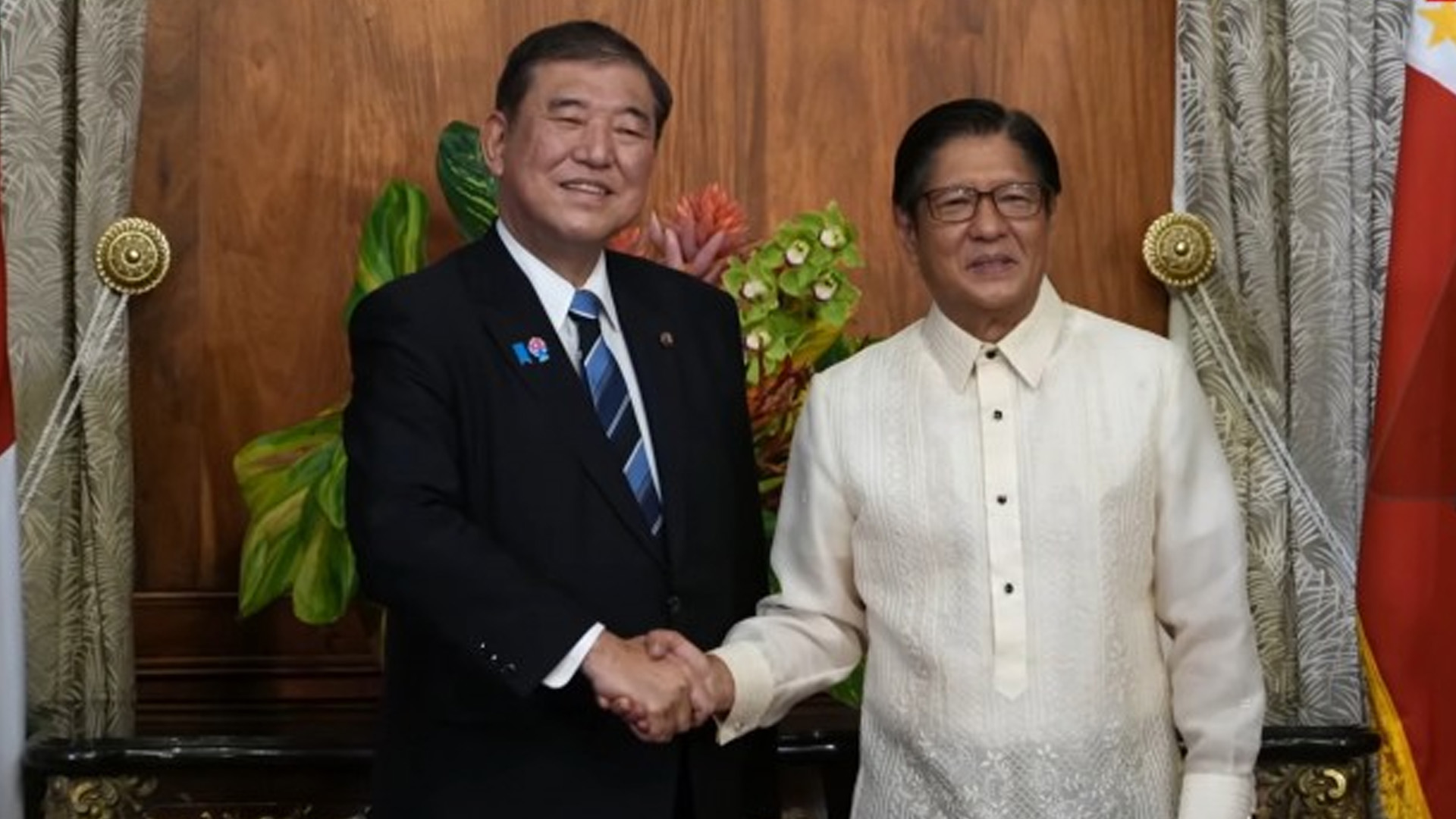President Ferdinand R. Marcos Jr. and Japanese Prime Minister Shigeru Ishiba on Tuesday discussed “better solutions” to counter the economic impact of the tariffs imposed by the United States (US).
“On the status of the global economy, we discussed on the tariff measures taken by the United States, as well as the impact felt on the multilateral free trade regime and the world economy because of the reciprocal retaliations seen with the United States and China,” Ishiba said in a joint statement after the bilateral meeting at Malacañan Palace in Manila.
Ishiba said there are ways to address the potential economic challenges, in the wake of the implementation of the US’ new tariff policy.
“Many Japanese companies have been playing a role in the local economy here in the Philippines. I conveyed to President Marcos that I will listen carefully to the voices so that they will be able to bring forth better solutions,” Ishiba said.
Marcos said Japan remains a “reliable and steadfast partner” of the Philippines.
This, as he acknowledged that Japan is the Philippines’ second largest economic partner and one of the top bilateral partners for trade, investment, and development cooperation.
“With the Philippines-Japan Economic Partnership Agreement that we have in place, we continue to look for ways to strengthen our business ties with Japan to broaden economic opportunities for Filipinos,” Marcos said.
“We appreciate Japan’s development assistance, which we see as the gold standard for development cooperation. It is primarily because it supports our maritime domain awareness, infrastructure, food security, improved climate change adaptability, digital transformation, agriculture, space, cyber technology, health, energy, and many others,” he added.
Marcos also stressed the crucial role of the two nations’ development cooperation in the Mindanao peace process, saying it will “uplift the lives of Filipinos and promotes economic competitiveness in Mindanao.”
Ishiba expressed Japan’s readiness to cooperate with the Philippines by “making use of uniquely Japanese strengths” to help the Marcos administration in attaining the “upper-middle income status.”
“I explained that we will work with the Philippines in a package of corporations covering telecommunications, AZEC (Asia Zero Emmission Community), energy, mineral resources, infrastructure and disaster risk reduction and others. The President and I agreed to further strengthen our partnership on these areas,” he said. (PNA)







